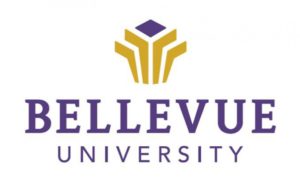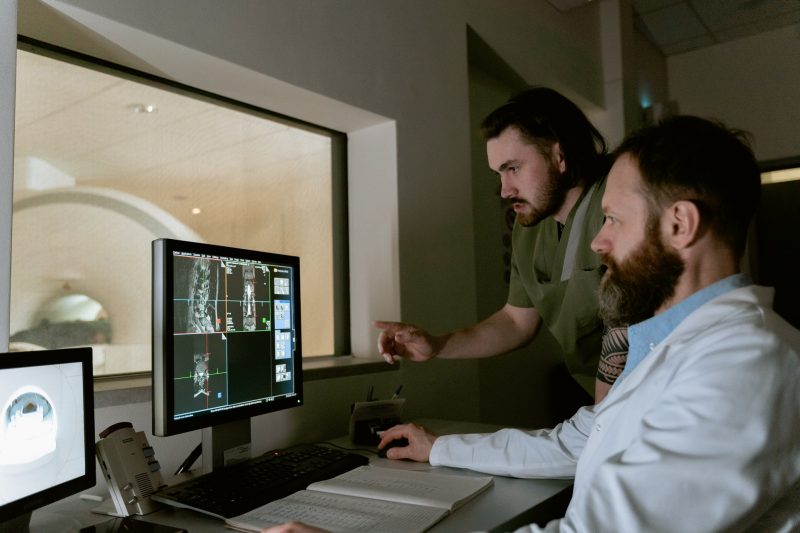Key Information:
- The University of Iowa Health Care is the #1 school for a fast online radiation science bachelor’s degree.
- Several programs offer non-clinical tracks which do not require clinical internships, focusing instead on advanced modalities and administrative skills.
- Many of these programs cater to professionals with prior certifications or associate degrees in radiologic technology, often granting academic credit for work experience.
A lot of health careers are growing, and that includes radiation science. As a result, many students have questions about radiation degree programs. A bachelor’s degree comes with even more advantages than an associate’s degree. For one thing, some workplaces may require it. Having a bachelor’s degree can open up your career possibilities. Even when workplaces don’t require a bachelor’s degree, having a degree can help you stand out among other job applicants. You may also increase your salary potential.
Accelerated radiation therapy programs come with advantages of their own. Accelerated degrees require the same coursework as non-accelerated degrees. However, accelerated programs require students to complete that coursework in a shorter period of time. It’s a challenging pathway, but it works well for many students.
Methodology: Ranking the Best Accelerated Radiation Therapy Programs
For the Bachelor’s Degree Center ranking of the fastest accelerated radiation therapy programs, editors weren’t just concerned with speed — that’s just one factor. We feature only accredited institutions recognized for quality and ranked with verified data from IPEDS and Niche. Programs are ranked according to their cost, graduate salary, and student reviews.
1. University of Iowa Health Care

The University of Iowa Health Care offers a BS in Radiation Sciences that is among the best online accelerated radiation therapy programs in Iowa and beyond. This radiation science degree from the University of Iowa offers Radiologic and Nuclear Radiation Technologists four modalities from which to choose – MRI – Magnetic Resonance Imaging, BI – Breast Imaging, CVI – Cardiovascular Interventional Imaging and CT- computed tomography – or a multi-modality path – none of which requires a clinical internship.
Chartered in the 1840s, the University of Iowa now operates as a space-grant school. More than 21,450 students attend classes offered by the University of Iowa.
What We Like: The University of Iowa is recognized as the first public institution of higher education in the country to be coeducational and the developer of the fine arts degree.
Degree: BS in Radiation Sciences
2. University of Nebraska

The University of Nebraska Medical Center offers a BS in Medical Imaging & Therapeutic Sciences (MITS) that is a degree advancement option for working professionals. The University of Nebraska’s accelerated radiation therapy programs can be completed in as few as three semesters, with students having 5 years to finish. Note that this program has no clinical education component. This completion program requires 20 semester hours, including featured core classes in health care ethics and critical thinking, scanning the healthcare environment, and management in health care.
The University of Nebraska’s Medical Center is a public medical institution of higher learning that was established in the early 1990s as the Omaha Medical College. After becoming a part of the state’s university system in 1902, the University of Nebraska Medical Center now operates as a space-grant school with a student enrollment that exceeds 4,150 students each year.
What We Like: The University of Nebraska Medical Center was a key player in the nation’s response to Ebola in 2014.
Degree: Medical Imaging & Therapeutic Sciences, BS
3. University of Oklahoma Health Sciences Center

The University of Oklahoma Health Sciences Center offers a BS in Radiation Sciences that is considered a non-clinical completion degree program for professionals working in radiation therapy, sonography, nuclear medicine, and radiography. The University of Oklahoma’s accelerated radiation therapy programs can be completed in only 1.5 years, completely online. Applicants to this program must hold certain certifications to be eligible but are given college credit for previous work experience.
Established as a public medical school in the early 1970s, the University of Oklahoma-Health Sciences Center is now the primary educational facility for many medical professionals in the state. More than 4,000 students attend classes offered online or on-campus.
What We Like: The University of Oklahoma’s Health Science campus is located near the state capitol in Oklahoma City.
Degree: BS in Radiation Sciences
4. Bellevue College

Bellevue College offers a Bachelor of Applied Science (BAS) in Radiation & Imaging Sciences (RAIS) that is considered among the Pacific Northwest’s most innovative accelerated radiation therapy programs. Successful completion of this radiation science degree provides students with the option of earning a number of modality certificates and are eligible to sit for advanced national modality certification examinations. Advanced modality options include Vascular Intervention, Positron Emission Tomography, Mammography, Breast Ultrasound, Magnetic Resonance Imaging, and Computed Tomography.
Bellevue College was founded as a public college in the mid-1960s and is now a member of the Washington Community & Technical Colleges system. The college serves approximately 30,000 students each year, which makes it the 3rd largest in the state.
What We Like: The radiation therapy programs are accredited by the JRCERT.
Degree: BAS in Radiation & Imaging Sciences
5. Boise State University

Boise State University offers a BS in Imaging Sciences that offers a curriculum that fully aligns with ASRT guides – the American Society of Radiologic Technology. Boise State University’s accelerated radiation therapy programs can be completed in as few as 3 semesters. Applicants to Boise State University’s radiation science completion degree program must hold an associate degree from a regionally accredited school and are credentialed imaging practitioners. This radiation science program from Boise State University requires 33-semester units to meet program requirements.
Founded in the 1930s as a junior college, Boise State University now operates as a space-grant higher learning university with a student enrollment that exceeds 24,000 undergraduate and graduate students each year.
What We Like: Boise State University is organized into eight colleges/schools offering programs in engineering, business, health, public service, innovation, business, and health, among others.
Degree: BS in Imaging Sciences
6. Washburn University

Washburn University offers a BS in Radiation Therapy that is accredited by JRCERT – the Joint Review Committee on Education in Radiologic Technology. Applicants to Washburn’s accelerated radiation therapy programs must have graduated from a Radiologic technology program that was accredited and hold a professional designation. This completion degree requires degree candidates to complete 40-semester units. This degree from Washburn University can be completed in as few as twelve months. Featured classes include clinical radiation therapy, oncology, simulation and treatment, and radiation therapy physics, among others.
Washburn University was established as Lincoln College in the mid-1860s by a legislative charter. The university’s suburban Topeka campus and online platform are home to more than 6,000 students each year.
What We Like: Washburn took part in the V12 navy training program during World War II.
Degree: BS in Radiation Therapy
7. University of Cincinnati

The University of Cincinnati offers a BS completion program in Radiation Science Technology that offers degree candidates three academic tracks – computed tomography, leadership, or mammography. The University of Cincinnati’s accelerated radiation therapy programs require the completion of 60-semester credits, with transfer credits accepted, if eligible. Students complete an internship in either the management of radiation science or education of radiation science. Sample classes include diversity in medical imaging, and foundations of imaging modalities, to name a few.
The University of Cincinnati was established as a college in 1819 and ranked as the oldest higher learning institution in the city. The University of Cincinnati holds the distinction of being a member school of Ohio’s university system, with a student body of more than 43,000 – the second largest in Ohio.
What We Like: The University of Cincinnati maintains four campuses in Cincinnati, Clifton heights, Blue Ash, and Clermont.
Degree: Bachelor of Radiation Science Technology
8. Regis College

Regis College offers a non-clinical BS completion program in Medical Imaging that allows students to transfer up to 90 credit units if the credits meet Regis College’s eligibility requirements. Students enrolled in Regis College’s accelerated radiation therapy programs can complete the degree, on average, in 12 to 16 months. Graduates of this degree from Regis College find rewarding careers as a radiologist assistant, an administrator, or a clinical instructor, to name a few.
Regis College is a Roman Catholic higher learning institution that was founded by the Sisters of St Joseph in 1927. The school’s suburban campus covers more than 100 acres and serves approximately 2,000 students each year.
What We Like: Regis College is divided into four schools offering programs in business, nursing, health sciences, and arts/sciences.
Degree: BS in Medical Imaging
9. Saint Joseph’s College of Maine

Saint Joseph’s College of Maine offers a BS in Radiologic Science Administration (BSRSA) that is among the leading accelerated radiation therapy programs in New England. Students interested in attending Saint Joseph’s College’s completion degree in radiation science can transfer up to 50 semester hours if eligible. Featured core classes include quality in healthcare administration, legal aspects of healthcare administration, and health care informatics, to name a few.
Saint Joseph’s College of Maine was originally established as an all-women’s school in 1912 but eventually became coeducation. This Roman Catholic, space-grant school serves about 2,000 students each year from its Standish campus and online platform.
What We Like: Saint Joseph’s College of Maine offers students an impressive faculty to student ratio of 1 to 12.
Degree: BS in Radiologic Science Administration
10. Pima Medical Institute in Las Vegas

Pima Medical Institute in Las Vegas offers a BS completion program in Radiologic Sciences (BSRS) that requires 120 credits to earn the degree, with up to 70 credits available for transfer if eligible. Students enrolled in Pima Medical Institute’s accelerated radiation therapy programs can finish this completion degree program in only 16 months. Sample coursework for Pima Medical institute’s radiation science degree includes patient information and management, health care law and compliance, advanced modalities, and culture and human diversity.
Founded in the 1970s in Tucson, Pima Medical Institute is now considered the largest of any independently owned allied health schools.
What We Like: Pima Medical Institute in Las Vegas is a for-profit school — one of eighteen schools with the Pima Medical Institute system across the western United States.
Degree: BS in Radiologic Sciences
What are the Advantages of an Accelerated Radiation Science or Therapy Degree?
Why should you look at accelerated radiation therapy programs? First, if you want to go into radiation therapy, you’ll need at least an associate’s degree. A degree will teach you how to work with complex machinery.
Some students struggle to choose between a bachelor’s degree and an associate’s degree. On the one hand, an associate’s degree usually takes about two years, so it lets students get to work faster. On the other hand, a bachelor’s degree provides a more detailed education. An accelerated bachelor’s degree can provide the best of both worlds. You can get a bachelor’s degree education in the time that it would take for you to earn an associate’s degree.
What Can I Do With a Degree in Radiation Science or Therapy?
Once you graduate and earn certification, you can look for radiation science degree jobs. So, what jobs do a bachelor’s degree in radiation science get? When it comes to jobs with radiation therapy, degree holders usually choose one of two pathways. Before doing a Google search for “jobs to get with radiation therapy degree,” take a look at the options below.
First, there are medical imaging jobs. With radiation science degree holders, medical imaging makes a popular choice. Medical imaging uses technology to see inside the body. Examples include X‑rays, MRIs, CT scans, mammograms, and more. These images can help diagnose illnesses and monitor progress.
Another option is radiation therapy jobs. With radiation therapy degree holders, this is the most common choice. Radiation is often used as a cancer treatment. It uses radiation to kill cancerous cells. Radiation technologists operate the radiation machinery and help patients prepare for treatment.
While those are the most common radiation science degree jobs, they aren’t the only ones. In fact, if you google “What kind of jobs can I get with radiation therapy degree,” you’ll find lots of options.
For instance, some people go into education. They teach future medical imaging and radiology technicians. This option requires an advanced degree, but a bachelor’s in radiation science is a great place to start.
Others go into administration jobs. With radiation science, degree holders often have key leadership skills. These skills can help them become program directors and shift organizers.
Overall, there are plenty of jobs to get with radiation therapy. Degree holders can thrive in any number of pathways.
Will a Certificate in Radiology Help My Career?
Yes, a radiation therapy certificate will help your career.
Now, you should note the difference between a certificate in radiation therapy and certification in radiation therapy. These two things sound alike, but they serve different purposes. Either one will help your career, but they’ll help your career in different ways. People often get confused by the difference, so why not take a closer look?
First, what is a radiation therapy certificate? Certificates are similar to degrees. People earn them by taking classes, usually at colleges and universities. Certificates can let you add more skills to your skillset without having to earn another full degree. People often earn certificates in addition to their degrees. So if you already have a degree, adding a certificate in radiation therapy can help you increase your career options.
Keep in mind, however, that having a radiation certificate isn’t the same as being certified in radiation therapy. To be certified, you’ll need certification, not a certificate.
Now what is radiation therapy certification? When you have certification in radiation therapy, it means that you’ve passed the ARRT exams. In many states, you’ll need radiation therapy certification to work in the field. Even if your state does not require you to take the ARRT exams, having certification can still help your career. It can give you an advantage over job candidates who aren’t certified.
Related Rankings:
25 Best Bachelor’s in Radiation Science
